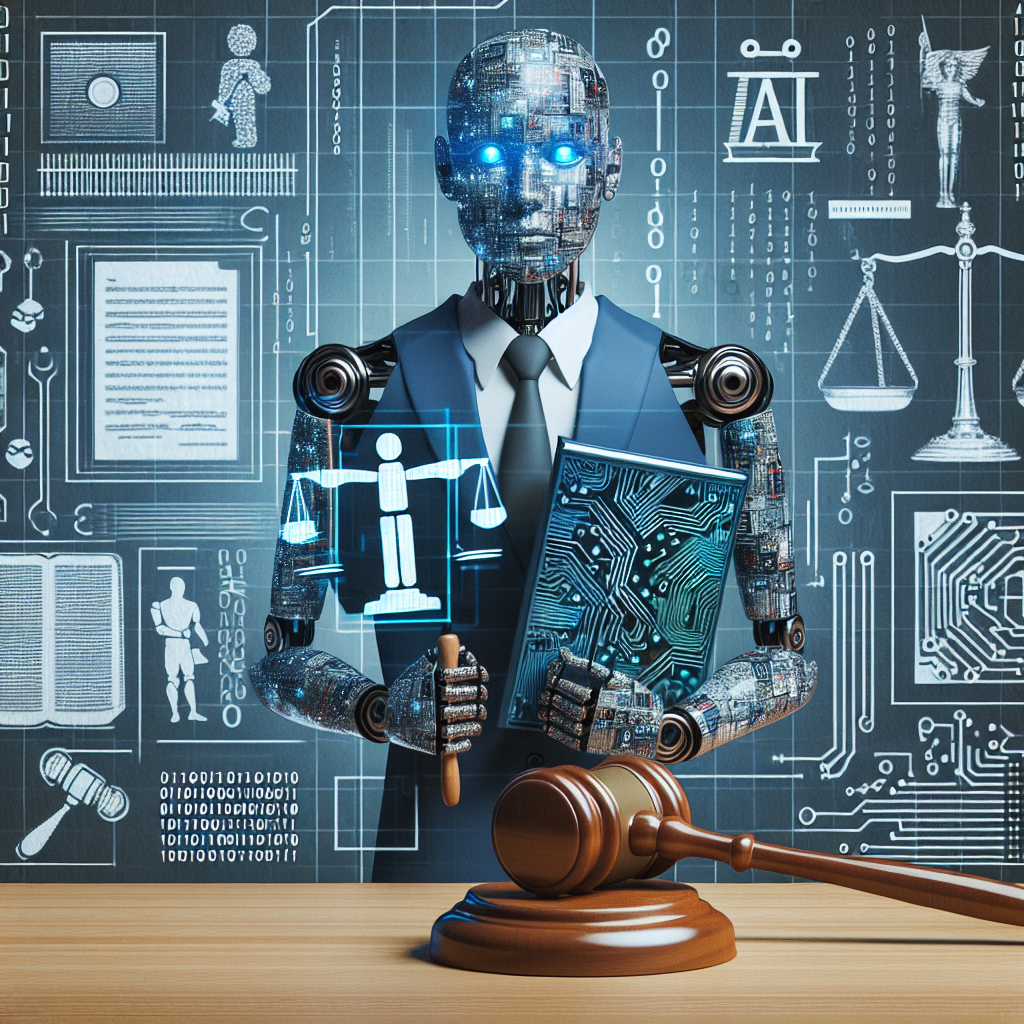Artificial Intelligence (AI) has made significant advancements in recent years, with applications in various industries such as healthcare, finance, and marketing. One area that is increasingly exploring the use of AI is the legal sector. AI has the potential to revolutionize legal decision-making processes by analyzing vast amounts of data, identifying patterns, and predicting outcomes with a high degree of accuracy. However, there are also concerns about the limitations and ethical implications of using AI in legal decision making.
Exploring the Limits of AI in Legal Decision Making
AI has the potential to streamline legal processes and improve efficiency in the legal system. For example, AI can be used to analyze large volumes of case law, statutes, and legal documents to identify relevant information and precedents. This can help lawyers and judges make more informed decisions and save time on research.
AI can also be used to predict case outcomes based on historical data and patterns. This can be particularly useful in predicting the likelihood of success in a legal case or identifying potential risks. By analyzing past cases and outcomes, AI systems can provide valuable insights to legal professionals and help them make more strategic decisions.
Another potential use of AI in legal decision making is in contract analysis. AI can be used to review and analyze contracts to identify potential risks, inconsistencies, or clauses that may need to be revised. This can save legal professionals time and resources and ensure that contracts are accurate and legally sound.
Despite the potential benefits of AI in legal decision making, there are also limitations and challenges that need to be addressed. One of the main concerns is the lack of transparency in AI algorithms. AI systems are often complex and opaque, making it difficult to understand how they arrive at their decisions. This can raise concerns about bias, accountability, and fairness in legal decision making.
Another limitation of AI in legal decision making is the potential for errors and inaccuracies. AI systems are only as good as the data they are trained on, and there is a risk of bias or inaccuracies in the data. This can lead to incorrect predictions or recommendations, which can have serious consequences in legal cases.
There are also ethical considerations to take into account when using AI in legal decision making. For example, there may be concerns about privacy and data security when using AI systems to analyze sensitive legal information. There may also be questions about the role of human judgment and discretion in legal decision making, and whether AI systems can fully replace human decision makers.
FAQs about AI in Legal Decision Making
Q: How does AI in legal decision making work?
A: AI systems in legal decision making work by analyzing large amounts of data, identifying patterns and trends, and making predictions based on that data. AI algorithms are trained on historical data and are designed to learn from that data to make accurate predictions and recommendations.
Q: What are the benefits of using AI in legal decision making?
A: The benefits of using AI in legal decision making include improved efficiency, accuracy, and consistency in decision making. AI systems can analyze vast amounts of data quickly and accurately, identify relevant information, and make predictions based on that data. This can help legal professionals make more informed decisions and save time on research and analysis.
Q: What are the limitations of using AI in legal decision making?
A: The limitations of using AI in legal decision making include concerns about bias, lack of transparency, and potential errors and inaccuracies. AI systems are only as good as the data they are trained on, and there is a risk of bias or inaccuracies in the data. This can lead to incorrect predictions or recommendations, which can have serious consequences in legal cases.
Q: What are the ethical considerations of using AI in legal decision making?
A: The ethical considerations of using AI in legal decision making include concerns about privacy, data security, and the role of human judgment. There may be questions about the transparency and accountability of AI algorithms, as well as the potential for bias and discrimination in AI systems. There may also be concerns about the impact of AI on human decision-making and the legal profession.
In conclusion, AI has the potential to revolutionize legal decision making by improving efficiency, accuracy, and consistency. However, there are also limitations and ethical considerations that need to be addressed. By understanding the potential benefits and risks of using AI in legal decision making, we can work towards developing AI systems that are transparent, unbiased, and accountable. Ultimately, AI has the potential to transform the legal sector and provide valuable insights and recommendations to legal professionals.

